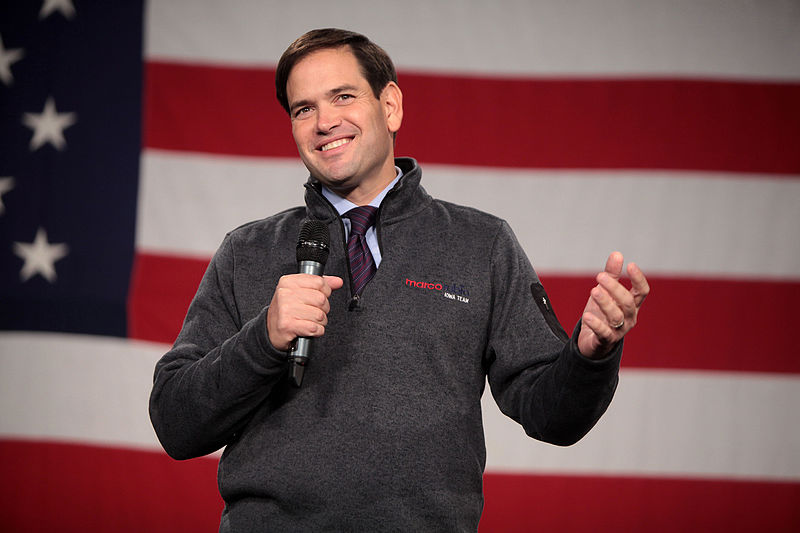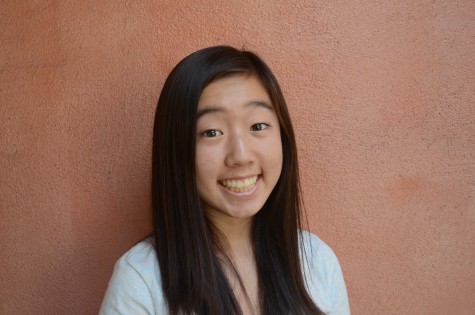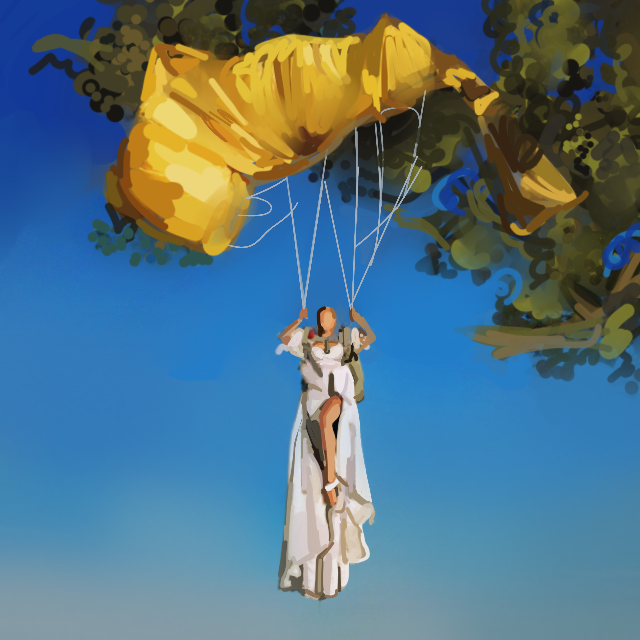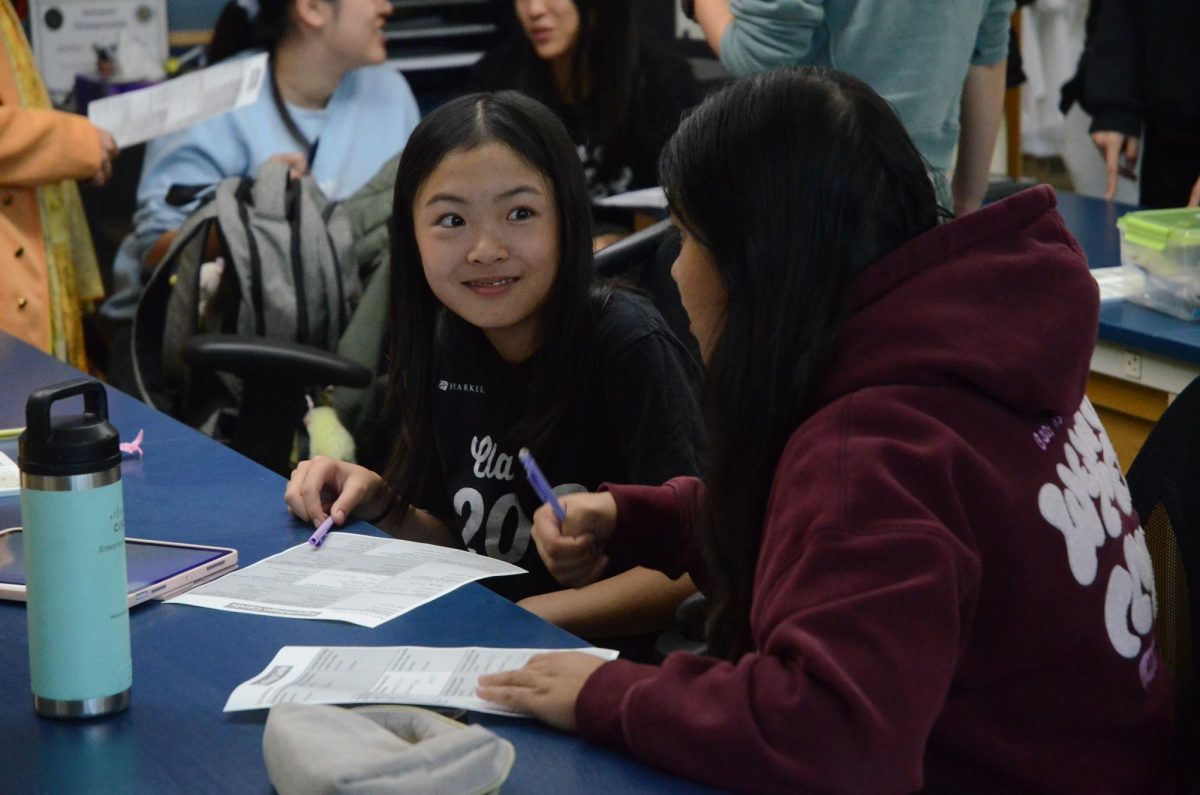Iowa caucus held Monday night
Courtesy of Wikimedia Commons
Republican candidate Marco Rubio presents at a previous event for the 2016 Presidential Elections. Rubio received 23% of the vote from the Republican Iowa caucus.
February 3, 2016
Registered voters in Iowa gathered at 1,682 precincts across the state for the Iowa caucuses, which represent the official start of the primary election season, on Monday night.
By definition, a caucus is “a meeting of members of a political party for the purpose of choosing candidates for an election,” according to Merriam-Webster Dictionary. In 1972, Iowa was the first state to hold a Democratic caucus, and the first Republican caucus followed four years later.
The Republican caucus uses secret ballots, an anonymous voting method, to vote. The Democratic caucus has a multi-step process in determining the winner. Candidates’ volunteers present why one should vote for them, which is followed by an unofficial ballot, usually by separating into clusters. Candidates must receive at least 15 percent support to still be considered. Those caucusing for the qualifying candidates then continue to persuade uncommitted voters to support their campaign and ultimately acquire the most votes.
“The caucuses are run differently than a primary in that they are more of a community gathering,” said Carol Green, upper school AP U.S. Government and Politics teacher. “It’s a different form of political participation because it requires very active participation. Once you’re there, you have to stay there.”
A total of 357,983 Iowans, 15.7 percent of eligible voters, participated in this year’s caucuses, split between 186,874 Republicans and 171,109 Democrats. Although this turnout rate is slightly than the 16.1% from the 2008 election, a record number of Republicans attended.
This year’s caucus results were comparatively different from those of earlier presidential polls. On the Republican side, Sen. Ted Cruz of Texas won with 27.6% of the votes, followed by businessman Donald Trump at 24.3% and Sen. Marco Rubio of Florida at 23.1%.
Former Secretary of State Hillary Clinton and Sen. Bernie Sanders of Vermont finished with a virtual tie, but Clinton still won the Democratic party with 49.9% and Sanders at 49.6%. In six precincts, the vote was so close that delegates were casted based off a coin flip. Clinton won the Iowa caucuses by about four state delegates, so some question if the coin flips were the reason for her victory.
Two presidential candidates, former Maryland Governor Martin O’Malley and former Arkansas Governor Mike Huckabee officially dropped out of the election.
“I think the biggest surprise was actually Marco Rubio polling at 23%, which was right behind Cruz and Trump, when he was actually getting around 15% in the pre-prediction polls,” senior Sorjo Banerjee said. “That’s a good thing since he’s less radical than Trump or Cruz in my opinion.”
Because the Iowa caucuses provide the first chance in the nation for a ballot to be cast, they give candidates an idea of their campaign status.
“It’s really the first real voter interaction so from this, they’re trying to change their strategy to see how they can do better in the future in primaries,” Sorjo said.
The caucuses also provide voters with a glimpse of what to expect in the coming election.
“I think we’re going to see an interesting shift in the next couple of months,” Green said. “I think this is going to be a much closer race than originally anticipated.”
Numerous primaries will occur over the next several months. The first in the nation is scheduled for next Tuesday, Feb. 9, in New Hampshire. Some Republican candidates, such as Ohio Governor John Kasich, chose to skip campaigning in Iowa and instead focus on New Hampshire. Cruz will not make an appearance in New Hampshire while Trump, who has popular support in New Hampshire, hopes to regain momentum. On the Democratic side, Clinton and Sanders will both intensify their campaign efforts.
The California primary will be on June 7. The 2016 Democratic Convention will be July 25-28 in Philadelphia, while the 2016 Republican National Convention will be July 18-21 in Cleveland, Ohio.
“By the time you get to the convention, it’s usually pretty clear who’s going to be elected, but at the same time it’ll be interesting to see,” Green said. “I think with individuals like Trump in the mix, it’s still unpredictable what’s happening.”
For students interested in following the upcoming events of the presidential election, the Issues Discussion Club (IDC), Economics Society and the Junior State of America (JSA) will continue to hold Pizza and Politics Nights throughout second semester.


















![“[Building nerf blasters] became this outlet of creativity for me that hasn't been matched by anything else. The process [of] making a build complete to your desire is such a painstakingly difficult process, but I've had to learn from [the skills needed from] soldering to proper painting. There's so many different options for everything, if you think about it, it exists. The best part is [that] if it doesn't exist, you can build it yourself," Ishaan Parate said.](https://harkeraquila.com/wp-content/uploads/2022/08/DSC_8149-900x604.jpg)




![“When I came into high school, I was ready to be a follower. But DECA was a game changer for me. It helped me overcome my fear of public speaking, and it's played such a major role in who I've become today. To be able to successfully lead a chapter of 150 students, an officer team and be one of the upperclassmen I once really admired is something I'm [really] proud of,” Anvitha Tummala ('21) said.](https://harkeraquila.com/wp-content/uploads/2021/07/Screen-Shot-2021-07-25-at-9.50.05-AM-900x594.png)







![“I think getting up in the morning and having a sense of purpose [is exciting]. I think without a certain amount of drive, life is kind of obsolete and mundane, and I think having that every single day is what makes each day unique and kind of makes life exciting,” Neymika Jain (12) said.](https://harkeraquila.com/wp-content/uploads/2017/06/Screen-Shot-2017-06-03-at-4.54.16-PM.png)








![“My slogan is ‘slow feet, don’t eat, and I’m hungry.’ You need to run fast to get where you are–you aren't going to get those championships if you aren't fast,” Angel Cervantes (12) said. “I want to do well in school on my tests and in track and win championships for my team. I live by that, [and] I can do that anywhere: in the classroom or on the field.”](https://harkeraquila.com/wp-content/uploads/2018/06/DSC5146-900x601.jpg)
![“[Volleyball has] taught me how to fall correctly, and another thing it taught is that you don’t have to be the best at something to be good at it. If you just hit the ball in a smart way, then it still scores points and you’re good at it. You could be a background player and still make a much bigger impact on the team than you would think,” Anya Gert (’20) said.](https://harkeraquila.com/wp-content/uploads/2020/06/AnnaGert_JinTuan_HoHPhotoEdited-600x900.jpeg)

![“I'm not nearly there yet, but [my confidence has] definitely been getting better since I was pretty shy and timid coming into Harker my freshman year. I know that there's a lot of people that are really confident in what they do, and I really admire them. Everyone's so driven and that has really pushed me to kind of try to find my own place in high school and be more confident,” Alyssa Huang (’20) said.](https://harkeraquila.com/wp-content/uploads/2020/06/AlyssaHuang_EmilyChen_HoHPhoto-900x749.jpeg)











